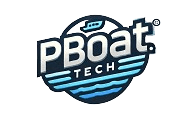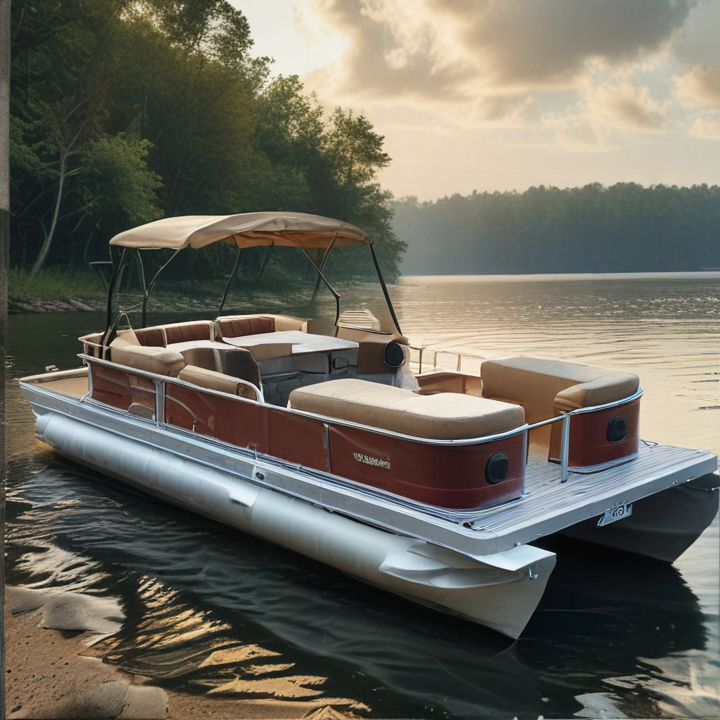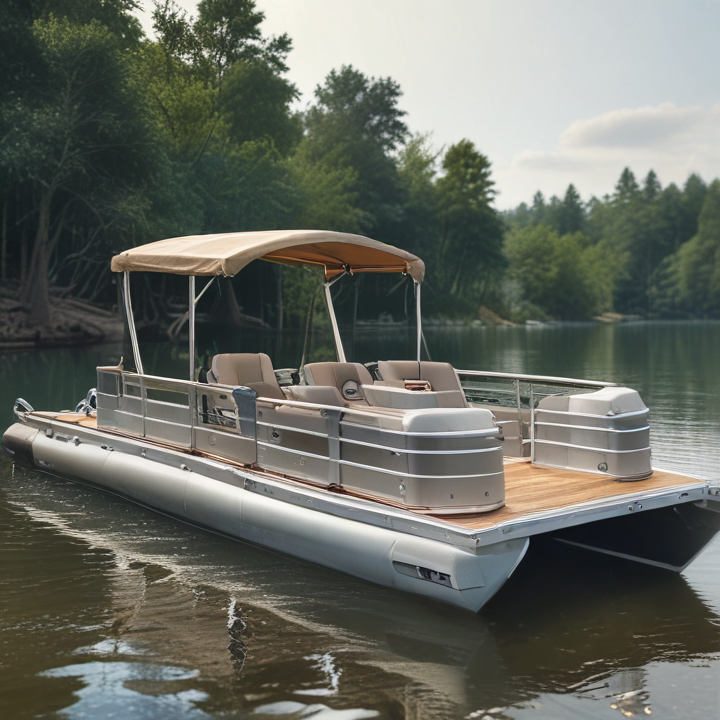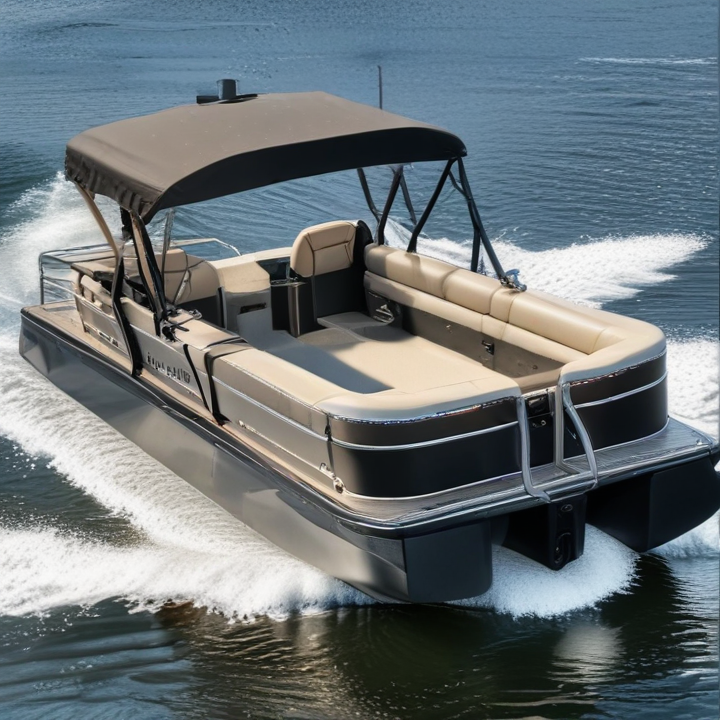custom pontoon boat Safety Certifications
When constructing or purchasing a custom pontoon boat, ensuring it meets safety certifications is crucial to safeguard passengers and comply with regulations. Key certifications to look for include:
1. National Marine Manufacturers Association (NMMA) Certification: This certification signifies that the pontoon boat adheres to the American Boat and Yacht Council (ABYC) standards. It covers critical safety elements such as electrical systems, fuel systems, and flotation.
2. U.S. Coast Guard (USCG) Compliance: Check that the boat complies with USCG regulations for flotation, navigation lights, and fire suppression equipment. The boat should have a capacity plate indicating the maximum weight and number of passengers it can safely carry.
3. ISO Standards: For international use, ensure compliance with International Organization for Standardization (ISO) standards, particularly ISO 12217, which pertains to the stability and buoyancy of small craft.
4. Canadian Standards Association (CSA): If in Canada, look for CSA certification, which aligns with Transport Canada’s regulations on safety equipment and construction standards.
5. CE Marking: For use in Europe, ensure the boat carries the CE marking, which indicates conformity with European Union directives related to safety, health, and environmental protection.
Additional certifications to consider include:
– American Boat & Yacht Council (ABYC) Standards Compliance: Alongside NMMA, check direct adherence to ABYC standards, which are the foundation for marine safety guidelines.
– Maritime and Coastguard Agency (MCA) Certification: For larger or commercial pontoon boats, MCA certification assures compliance with the UK’s rigorous safety and operational standards.
To conclude, ensuring that a custom pontoon boat is certified by recognized authorities such as the NMMA, USCG, ISO, CSA, and CE provides assurance of its safety, structural integrity, and regulatory compliance, thereby protecting passengers and enhancing the boating experience.
List Reference Technical Parameters of “custom pontoon boat”
When detailing the technical parameters of a custom pontoon boat, several key aspects should be considered to ensure a comprehensive understanding of the vessel’s capabilities and specifications:
1. Dimensions:
– Length: Can vary widely, typically between 16 to 30 feet.
– Beam (Width): Generally ranges from 8 to 10 feet.
– Draft: The depth the boat sits in the water, usually between 1 to 2 feet.
2. Hull:
– Material: Commonly aluminum for durability and lightweight.
– Number of Pontoons: Typically 2 or 3 (tritoon), affecting stability and load capacity.
3. Engine Specifications:
– Type: Outboard or inboard engines.
– Power: Ranges from 40 HP to over 300 HP, depending on the size and intended use.
– Fuel Capacity: Tanks may vary from 20 to 100 gallons.
4. Load Capacity:
– Passenger Capacity: Typically between 6 to 16 passengers.
– Weight Capacity: Commonly between 1,500 to 4,000 pounds.
5. Performance:
– Maximum Speed: Ranges from 15 to 50 mph, influenced by engine power and boat design.
– Cruising Speed: Usually between 15 to 25 mph for a balance of efficiency and comfort.
6. Comfort and Amenities:
– Seating: Customizable layouts with options for lounges, captain chairs, and benches.
– Storage: Under-seat compartments, built-in coolers, and deck space.
– Entertainment: Optional features like sound systems, fishing setups, and sun decks.
7. Safety and Compliance: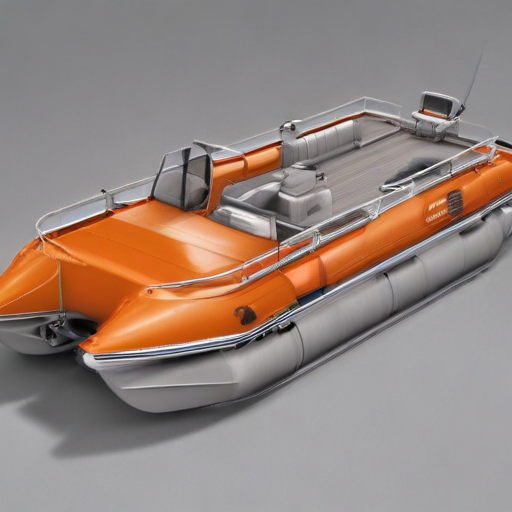
List Product features of “custom pontoon boat”
1. Custom Design: Tailored to the customer’s specifications, including length, width, and layout.
2. High-Quality Materials: Constructed with durable aluminum pontoons and high-grade marine components.
3. Versatile Seating Options: Various seating configurations, including loungers, captain chairs, and bench seating.
4. Advanced Navigation Systems: Equipped with GPS, depth finders, and advanced marine electronics.
5. Power Options: Choice of outboard engine types and horsepower ranging from fuel-efficient motors to high-performance options.
6. Luxurious Amenities: Features such as high-end upholstery, modular seating, and custom flooring options.
7. Entertainment Systems: High-quality audio systems, including Bluetooth connectivity, marine speakers, and LED lighting.
8. Integrated Storage: Ample storage compartments for personal items, fishing gear, and water sports equipment.
9. Safety Features: Includes railings, non-slip decking, fire extinguishers, and life jackets.
10. Customizable Colors and Finishes: A wide range of colors and finishes for the exterior and interior to suit personal tastes.
11. Fishing Capabilities: Optional fishing packages with rod holders, live wells, and tackle storage.
12. Water Sports Adaptability: Water sports accessories such as ski tow bars, wakeboard racks, and swim platforms.
13. Weather Protection: Options for bimini tops, enclosures, and marine-grade covers.
14. Eco-Friendly Options: Availability of electric or hybrid propulsion systems for eco-conscious buyers.
15. Enhanced Comfort: Climate control options like heaters or air conditioning units.
16. Warranty and Support: Comprehensive warranties and dedicated customer support for service and maintenance.
These features aim to provide an unrivaled boating experience, catering specifically to the unique needs and desires of each client, ensuring every custom pontoon boat is both functional and luxurious.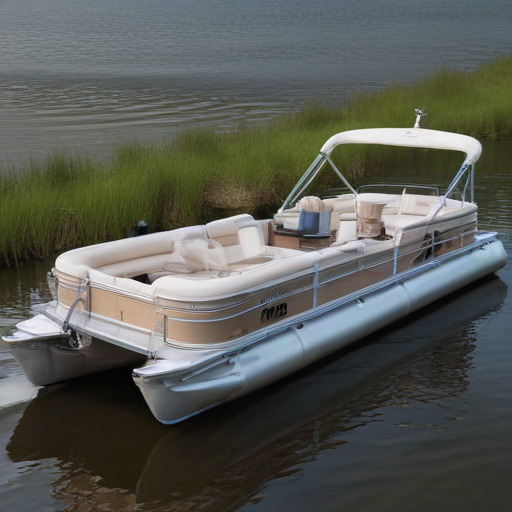
“custom pontoon boat” Warranty and Support
When investing in a custom pontoon boat, ensuring comprehensive warranty and support is paramount. Most reputable manufacturers offer warranties that cover a range of aspects, including the craftsmanship of the boat, the structural integrity of the pontoons, and the components such as the decking, railing, and electrical systems.
1. Warranty Basics:
– Structural Warranty: Typically covers the hull and pontoons. Many companies offer warranties ranging from 5 years to a lifetime.
– Component Warranty: Covers parts like the engine, electrical systems, and onboard facilities. This usually spans 1-3 years.
– Cosmetic Warranty: May cover upholstery, paint, and decals for a shorter period, often about 1 year.
– Transferability: Some warranties can be transferred if you sell the boat, enhancing its resale value.
2. Warranty Exclusions:
– Damage from improper use, lack of maintenance, or modifications not approved by the manufacturer.
– Normal wear and tear, including fading, scratches, and other cosmetic issues after the warranty period.
3. Support Services:
– Customer Service: Reliable manufacturers provide robust customer support to address queries and troubleshoot issues. This can include hotlines, email support, and live chat options.
– Authorized Service Centers: Many companies have an extensive network of authorized service centers where expert technicians can perform warranty work and routine maintenance.
– Owner Resources: Access to owner’s manuals, FAQs, and video tutorials for regular upkeep.
4. Extended Warranty Options:
– Some providers offer extended warranties for additional coverage beyond the standard terms. This can be a wise investment for long-term peace of mind.
Choosing a custom pontoon boat involves significant investment, and understanding the warranty and support services is crucial to ensure long-lasting enjoyment and value. Always read the fine print and clarify any doubts with the manufacturer.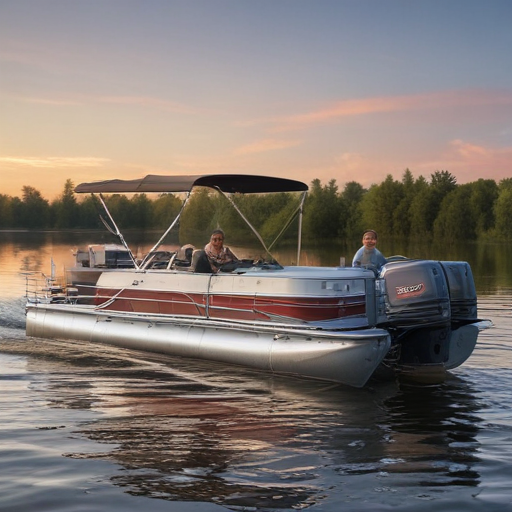
List “custom pontoon boat” FAQ
Custom Pontoon Boat FAQ
1. What is a custom pontoon boat?
A custom pontoon boat is a watercraft specifically designed and built according to the owner’s preferences. These boats can be tailored in various aspects, including size, layout, materials, features, and décor.
2. How long does it take to build a custom pontoon boat?
The build time varies depending on the complexity of the design and current workload of the manufacturer. On average, it can take anywhere from 8 to 16 weeks.
3. What factors influence the cost of a custom pontoon boat?
Cost is influenced by size, materials, engine type, additional features (like lounges, wet bars, or advanced navigation systems), and customization level. Prices can range from $30,000 to over $150,000.
4. Can I choose the layout and configuration?
Yes, a significant advantage of custom pontoon boats is the ability to design the layout and seating configuration to match your specific needs, whether for fishing, entertaining, or relaxing.
5. What materials are used in the construction?
Most pontoon boats are made from aluminum for the pontoons due to its durability and lightweight properties. Decks are often constructed from marine-grade plywood or composite materials. Upholstery and other finishes can be customized with various textures and colors.
6. What types of engines can I choose?
Options range from small outboard motors for leisurely cruising to powerful inboard engines for high-speed performance. Hybrid and electric motors are also available for environmentally conscious choices.
7. Are custom pontoon boats suitable for all water types?
These boats are typically designed for calm waters like lakes and rivers. However, with proper customization and robust construction, they can handle slightly rougher conditions.
8. Can I add technological features?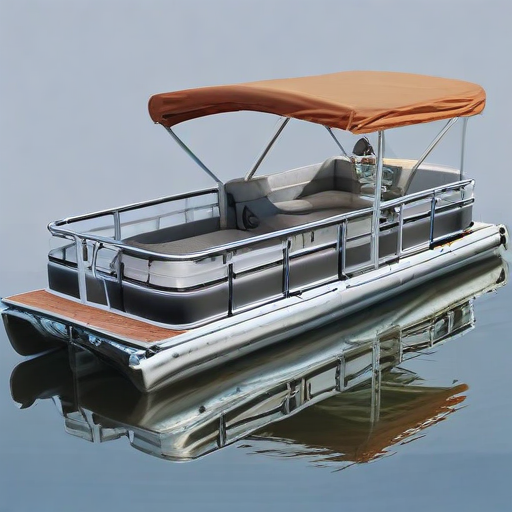
Top 10 FAQ with answer about custom pontoon boat for Buyer Sourcing from China
Top 10 FAQ about Sourcing Custom Pontoon Boats from China
1. What are the main benefits of sourcing pontoon boats from China?
– Cost Efficiency: Lower manufacturing and labor costs.
– Customization Options: Chinese manufacturers often offer extensive customization options for design, materials, and features.
2. How do I find a reliable manufacturer in China?
– Research: Use online platforms like Alibaba, or trade shows like the Canton Fair.
– References: Check reviews and ask for client references.
– Verification: Conduct factory visits, or hire third-party inspection services.
3. What is the typical lead time for a custom pontoon boat?
– Lead Time: Generally ranges from 30 to 90 days, depending on the complexity of customization and order quantity.
4. What customization options are available?
– Options: Sizes, layouts, seating arrangements, materials, engines, and additional features like entertainment systems, fishing accessories, and luxury amenities.
5. How can I ensure the quality of the pontoon boats?
– Quality Control: Request samples, conduct factory visits, and engage third-party inspection services.
– Certifications: Ensure manufacturers have relevant ISO certifications and comply with international marine safety standards.
6. What are the payment terms?
– Terms: Common terms include a 30% deposit and 70% before shipment. Options like letters of credit can also be considered.
7. How is shipping and logistics handled?
– Logistics: Manufacturers often assist with shipping. Choose between FOB (Free on Board) or CIF (Cost, Insurance, and Freight) terms.
– Clearance: Hire a customs broker for smooth clearance.
8. What about after-sales service and warranty?
